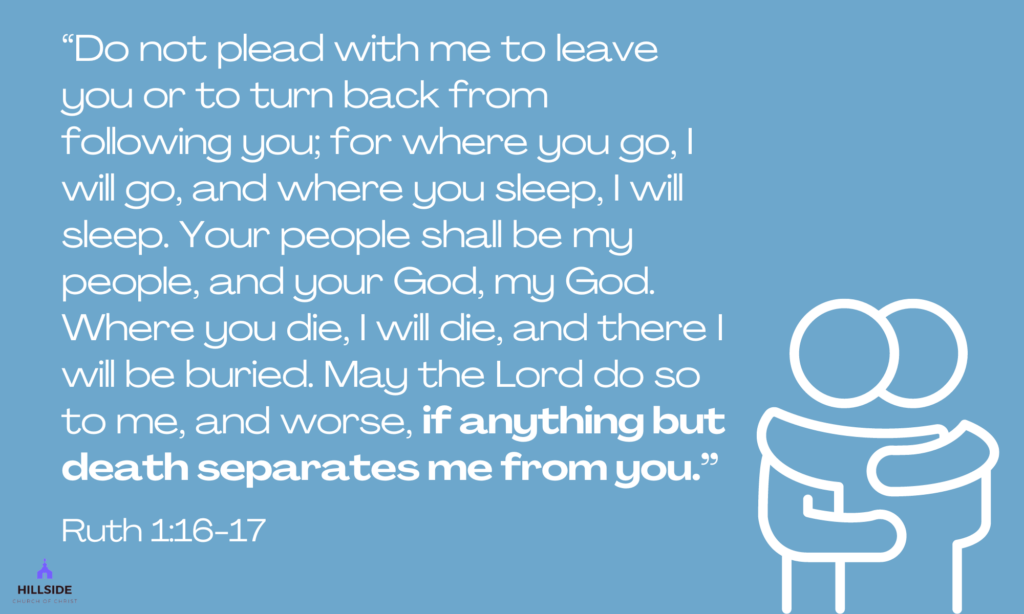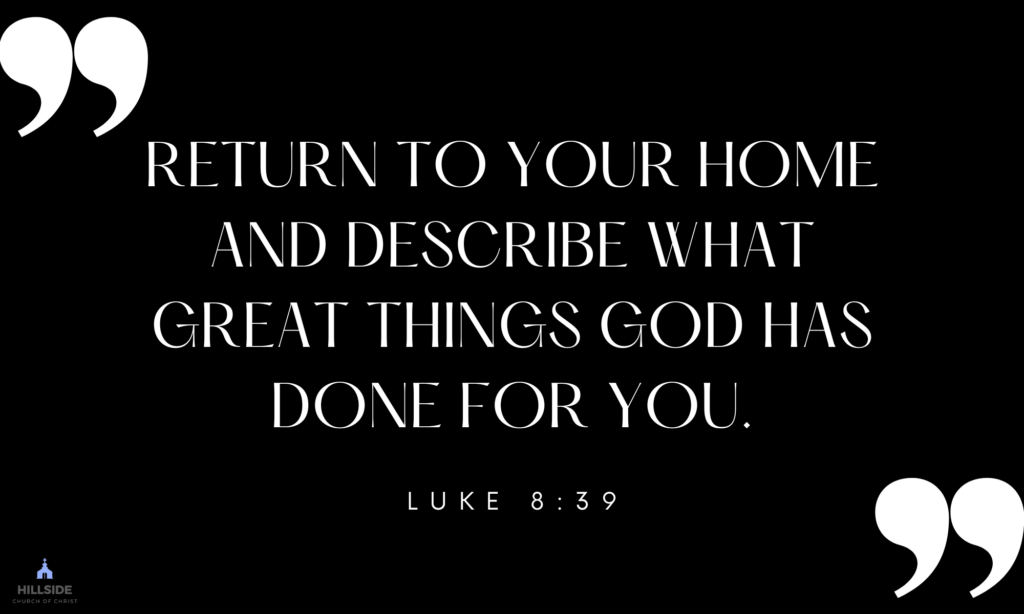Most churches talk about being a family, but at Hillside church in Greenville, I really believe we are one.
I’ve been here now for 14 years, and in that time period, I’ve seen a lot of growth, a lot of disappointments, and a lot of great moments. It’s been a learning process for me, but also a time of relative peace for all of us.
I am not, however, naive enough to think that all of this has happened by accident. Great churches don’t just happen; they appear because the people inside those churches were intentional in their relationships.
Consider the bond that Ruth and Naomi had after their husbands died. In Ruth 1, Naomi insists that Ruth go home to her own people. Instead, Ruth decides to stay with her mother-in-law. There are no familial or blood bonds — just two people who committed to working together and supporting each other.
Just like a church should.

Are you intentional with your relationships with your church family? Most of us would say we are, but here are a few questions to ask just to check.
Do We Spend Time Together?
Being intentional in our relationships with each other consists of spending quality time together.
Admittedly though, this can be difficult in an increasingly digital age. We’re stuck behind Zoom calls, virtual services are starting to creep in, and people are able to interact on social media. Why should we have lunch together when we already “see each other” online?
The point is not to just simple know that each other exist, but to “cling” to each other, just like Ruth did with Naomi (Ruth 1:14).
You see this happen with people throughout the Gospels, too. When Jesus healed people, it wasn’t unusual for that person to then beg to stay with Him.
One such example is the man whom Jesus exorcised a legion of demons. After he was healed, he insisted on accompanying the Messiah on His mission. Only after Jesus refused — and gave him another job — did the man consent to leave.

Why do we cling to people like this?
Part of it is shared interests. Have you ever gone on vacation and met someone that was also from your hometown? That connection is enough to make you instantly feel comfortable around that person, despite having never met them before.
That’s one of the main reasons that visiting other churches while you’re traveling is one of the greatest blessings. You get to meet Christians from all over the world that come from different walks of life. What could be better?
(If you’re looking for a church to visit while traveling, we recommend WhereSaintsMeet.com. It has the largest and most current database of churches in the world).
It seems that there’s usually a deeper connection, though.
In Song of Solomon 3:4, the bride says that she has “found the one whom my soul loves.” There’s a depth to that connection that goes beyond the surface; despite christians not being “in love” with each other, our souls can be knit together because of our deep love for the Lord.
You feel it when you walk into a church building (hopefully). You notice immediately whether or not the church members care for each other. If you’re lucky enough to be asked out for lunch by one of them (as a visitor), you feel it even more so.
These are the people that we should be trying to spend time with.
How Do I Respond to Division
Despite what you may think, division isn’t always a bad thing.
We may not want to have confrontations in our churches — and truthfully, it is something we should avoid as much as possible. When it happens though, how do you handle it? Do you drive the wedge between parties even further or do you use it as fuel to reconcile?
An interesting study came out a few years ago that talked about the value of “hostile mediators.”
In short, these were people that were brought into an already existing relationship, but instead of trying to help them through it gently, they were intentionally angry at both. They would yell, insult, sometimes even demean the parties involved — the total opposite of what a standard therapist would do.
Surprisingly, the “victims” of this hostile mediator united together and turned their attention to them, instead of each other. They had found a common enemy, and decided to work together. Reconciliation wasn’t far behind.

Satan is our enemy (Luke 11:14-23). We’re battling the world, not each other. The sooner we realize that, the better we’ll be able to reform those relationships that are torn apart and being working together once again.
Do I Have Goals For Others?
We have goals for ourselves, but have you ever had dreams and aspirations for other people?
Of course you have. When someone disappoints you, one of the things that naturally comes out of your mouth is “I expected more from you.” Why else would we say that if we didn’t have aspirations for them already? (Proverbs 23:13-19).
There is a great (albeit, subtle) instance of this in relationship to Jesus and His siblings. During His earthly ministry, Jesus’ brothers didn’t believe in Him (John 7:5). But after His resurrection, they did (Galatians 1:19).
Did Jesus foresee that? It’s impossible to tell, but His statement that obedience is what forms those relationships could have been a shot at some of them, imploring them to do better — to be better — and follow God.
We need to expect better from our fellow Christians, no matter where they’re at now. Being intentional in our relationships involves being invested in their growth.
Isn’t that what we’re trying to do as a church, anyways? (Hebrews 10:24-25)
Last modified: August 24, 2023
